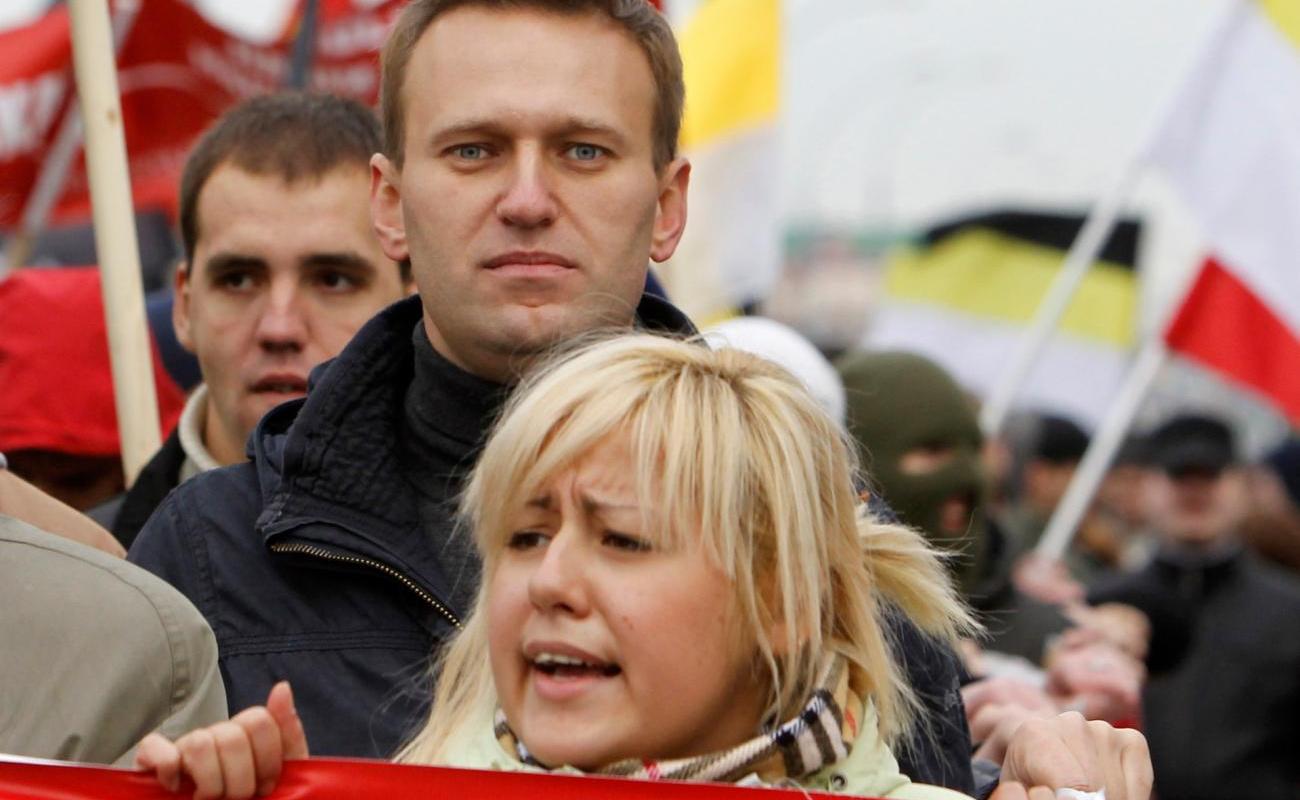Why Ukraine is wary of the Russian opposition

Russia’s full-scale invasion of Ukraine last year reignited a longstanding debate about the place the Russian opposition occupies in the context of Russian aggression in the post-Soviet space. Russian opposition activists and some observers have contended that Russian expansionism can stop only through regime change and democratisation, ostensibly led by the Russian opposition.
Ukrainians, and many of their supporters from post-Soviet countries that have experienced Russian imperialism firsthand, tend to disagree. They do not see the Russian opposition – and more specifically its most prominent leader today, Alexey Navalny – as future guarantors of peace.
To explain why, I would first like to relay an exchange I had with members of Navalny’s movement, or “Navalnists” as they are called in Russian, back in 2015.
It happened at a closed event at a British think tank in which a Ukrainian colleague of mine spoke about the transformation of cultural values in Ukraine after the 2014 revolution and the beginning of the Russian aggression. Among the attendees were two Russians, who were touring Britain as representatives of Navalny’s movement. After the talk was done, my colleague and I had a chance to have a brief chat with them.
As one might expect, we questioned them about the remarks Navalny made on Russia’s illegal annexation of Ukraine’s Crimea in March 2014. In an interview with Echo of Moscow radio station in October 2014, Navalny admitted that the peninsula had been seized through “outrageous violations of all international norms”, and yet asserted that it would “remain part of Russia” and would “never become part of Ukraine in the foreseeable future”.
His statement was not simply an assessment of the developments around Crimea. When pressed on whether he would return Crimea to Ukraine were he to become Russia’s president, Navalny wrapped his “No” in an odd rhetorical question: “What? Is Crimea a sandwich or something that you can take and give back?” It was clear that his political position on Crimea was that it should “remain part of Russia”.
It is important to point out that our conversation with the two Navalnists took place less than half a year after the assassination of prominent Russian opposition politician Boris Nemtsov near the Kremlin. The murder of Nemtsov, who vocally opposed Russia’s aggression against Ukraine and annexation of Crimea, allowed Navalny to emerge as the main Russian opposition leader still attempting to do politics in Russia.
The other major opponent of President Vladimir Putin’s regime, Mikhail Khodorkovsky, lived in exile in London and was not directly involved in Russian politics.
Hence, it was not unreasonable to imagine at that time that any regime change in Russia, if it were to happen, would be led by Navalny. That is why we wanted to know what Ukraine should expect from “the wonderful Russia of the future”, as Navalny likes to call post-Putin Russia.
The Navalnists responded that under a democratically elected government, Moscow would keep Crimea despite the fact that the annexation was illegal. That is because their policies would have to reflect the will of the Russian people and the overwhelming majority of Russians wanted Crimea to be within Russian borders.
In late February 2023, Navalny’s team published a 15-point manifesto that sought to clear much of the controversy around their views of Ukraine. Importantly, the manifesto acknowledged the internationally recognised borders of Ukraine, implying the need for the restoration of Ukraine’s sovereignty over Crimea and all other currently occupied Ukrainian territories.
The document also insisted on withdrawing all Russian troops from Ukraine, offering reparations, investigating war crimes in cooperation with international institutions, and ultimately letting Ukraine live and develop as Ukrainians want.
For many Ukrainians, however, this change of heart is well past its due date. In today’s Ukraine, very few believe that the Russian aggression can be stopped by anti-Putin activism, even one that is unambiguously pro-Ukrainian.
In this war, Ukrainians rely on their own fighting spirit and Western support. What happens to Russia after its much-anticipated military defeat in Ukraine is not of much concern. This may appear short-sighted, but the war is understandably a more pressing issue.
